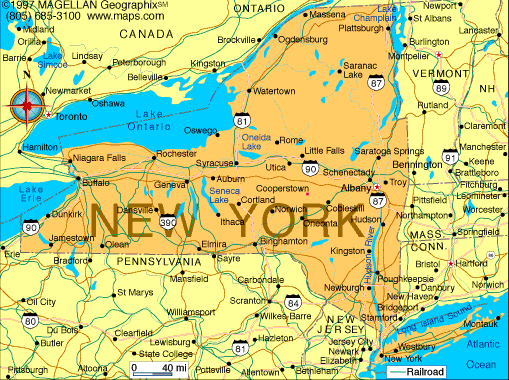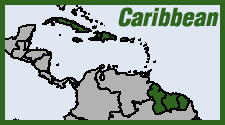 Back in March, Connecticut's Supreme Court, the state's highest, ruled that those convicted of past cannabis possession misdemeanors can have the charges erased from their records because the state decriminalized the herb in 2011. The unanimous ruling came in the case of Nicholas Menditto, who will now have his 2009 possession conviction expunged from his record. (The Joint Blog, March 17; AP, March 16) Last week, reporter Jon Campbell wrote in New York's Village Voice that activists in the Empire State are hoping for a similar outcome. New York was one of the first states to decriminalize, way back in '77, and the cut-off point for an infraction rather than a misdemeanor is a full ounce (as opposed to a half-ounce under the Connecticut law). But New York pot arrests have ironically continued at the highest rate in the country—especially in the Big Apple, under the aggressive policing since the '90s. The loophole that cops used? Cannabis in public view remains illegal—and suspects are basically forced into pulling out their stashes when stopped by cops and ordered to empty their pockets.
Back in March, Connecticut's Supreme Court, the state's highest, ruled that those convicted of past cannabis possession misdemeanors can have the charges erased from their records because the state decriminalized the herb in 2011. The unanimous ruling came in the case of Nicholas Menditto, who will now have his 2009 possession conviction expunged from his record. (The Joint Blog, March 17; AP, March 16) Last week, reporter Jon Campbell wrote in New York's Village Voice that activists in the Empire State are hoping for a similar outcome. New York was one of the first states to decriminalize, way back in '77, and the cut-off point for an infraction rather than a misdemeanor is a full ounce (as opposed to a half-ounce under the Connecticut law). But New York pot arrests have ironically continued at the highest rate in the country—especially in the Big Apple, under the aggressive policing since the '90s. The loophole that cops used? Cannabis in public view remains illegal—and suspects are basically forced into pulling out their stashes when stopped by cops and ordered to empty their pockets.

 The dizzyingly escalating crisis across the Middle East was ratcheted up several degrees last week as Saudi Arabia and its Gulf State allies intervened in Yemen, launching air-strikes against the Shi'ite rebels that have seized much of the country. Saudi troops are amassing on the border and there are fears that the air campaign, dubbed "Operation Decisive Storm," may soon be followed by a ground invasion. Within Yemen, Sunni tribes and militants in al-Qaeda's orbit are also battling the Shi'ite rebels, known as Houthis. (
The dizzyingly escalating crisis across the Middle East was ratcheted up several degrees last week as Saudi Arabia and its Gulf State allies intervened in Yemen, launching air-strikes against the Shi'ite rebels that have seized much of the country. Saudi troops are amassing on the border and there are fears that the air campaign, dubbed "Operation Decisive Storm," may soon be followed by a ground invasion. Within Yemen, Sunni tribes and militants in al-Qaeda's orbit are also battling the Shi'ite rebels, known as Houthis. ( Here we go again: the headline says one thing, the actual text (if you read carefully enough) something else entirely. In the relentless effort to
Here we go again: the headline says one thing, the actual text (if you read carefully enough) something else entirely. In the relentless effort to  Chicago is abuzz with explosive claims in
Chicago is abuzz with explosive claims in  Yet more grim evidence emerged this week that Mexico's warring cartels are becoming a real military force and underground parallel state in the country's lawless northeast.
Yet more grim evidence emerged this week that Mexico's warring cartels are becoming a real military force and underground parallel state in the country's lawless northeast.  Is the relieved pressure on cannabis in the United States undermining the Mexican cartels, as
Is the relieved pressure on cannabis in the United States undermining the Mexican cartels, as  It's the kind of headline we're more used to seeing from Mexico or Brazil. On Feb. 11, Taiwan's Kaohsiung prison exploded into violence as inmates took two guards hostage and seized rifles and other weapons, starting a 14-hour stand-off in which the facility was surrounded by police troops. It ended when six of the rebel inmates killed themselves, according to authorities.
It's the kind of headline we're more used to seeing from Mexico or Brazil. On Feb. 11, Taiwan's Kaohsiung prison exploded into violence as inmates took two guards hostage and seized rifles and other weapons, starting a 14-hour stand-off in which the facility was surrounded by police troops. It ended when six of the rebel inmates killed themselves, according to authorities. 





Recent comments
2 weeks 3 days ago
2 weeks 3 days ago
5 weeks 4 days ago
6 weeks 3 days ago
10 weeks 3 days ago
14 weeks 2 days ago
18 weeks 2 days ago
19 weeks 16 hours ago
29 weeks 16 hours ago
33 weeks 1 day ago